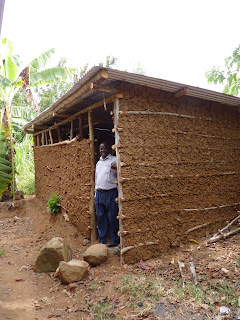Poultry keeping is an essential source of income for community groups in Shianda village in Kenya. In order to enhance their performance, Mondo provided five egg incubators for blocks which are part of an agricultural association. Since lack of electricity is part of the everyday life of the community, the groups also received solar panels as an answer to this challenge.
Besides electricity, the groups were lacking knowledge on how to use the machines properly, therefore they only had very low hatching rates. Based on my assessment, there were several factors hindering the project. The blocks were usually collecting the eggs for several weeks, although the eggs can be kept for a maximum of 10 days before putting them into the incubator. They also tried to buy eggs from unreliable sources which lead to the same problem. Furthermore, the eggs were not stored among proper, hygienic conditions, therefore some of them were already spoiled when the groups put them in the incubators. Therefore, I facilitated trainings with the assistance of WEFOCO’s local agricultural expert, Salim to provide the required knowledge for the members.
Besides delivering trainings, the incubators were moved to a school with a generator in the village in order to provide an opportunity for the members to practice with stable electricity, thanks to a teacher who is a member of the blocks. It was also important to develop cooperation among the groups, therefore meetings were organised where members could discuss any concerns and the required steps.
In order to keep the chickens produced by the incubators among appropriate conditions and to have the right supply of eggs, Mondo also provided chicken cages for the blocks which have been constructed by skilled labour under the supervision of WEFOCO’s agricultural expert. The groups contributed with locally available materials for building the cages.
Thanks to the above actions, the incubators' hatching rate has significantly increased and the groups received 458 chicks since last October. Having continuous supply of chicks allows members to generate a more stable income for their families.












No comments :
Post a Comment